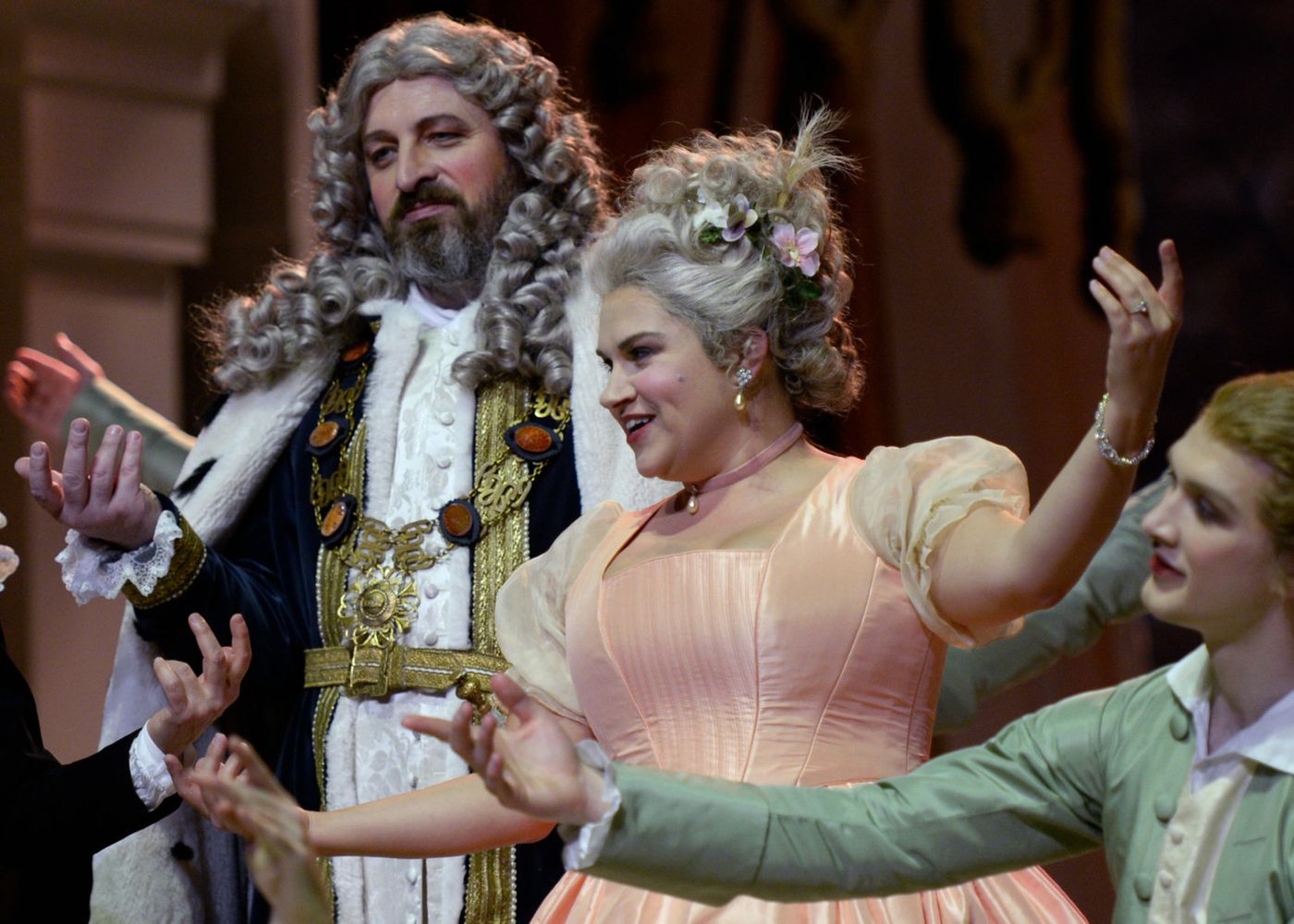Review: ARIODANTE at Monte-Carlo Opera
 For the first time in history, Ariodante has stepped on the Monte-Carlo Opera stage, bewildering and enchanting the Monegasque audience in this 3+ hour opera by Händel. Following the success of the Salzberg Festival production (under the keen eye of Christof Loy), the opera is set in the captivating Salle Garnier with no other than Cecilia Bartoli playing the role of Ariodante.
For the first time in history, Ariodante has stepped on the Monte-Carlo Opera stage, bewildering and enchanting the Monegasque audience in this 3+ hour opera by Händel. Following the success of the Salzberg Festival production (under the keen eye of Christof Loy), the opera is set in the captivating Salle Garnier with no other than Cecilia Bartoli playing the role of Ariodante.
For those unfamiliar with the story, this opera tells the tale of power and the means to attain it - no matter what. Spread over three acts, the viewer is taken on a journey of (unrequited) love, intrigue and trickery to attain power. Yet, even through suicidal tendencies and excommunication, the opera ends with a "happily ever after", leaving the audience with an exhilarated yet rested heart.
Originally played by a castrato, this Ariodante was played by no other than internationally acclaimed mezzo-soprano Cecilia Bartoli. And she certainly mastered the stage. Though it is not her first transvestite role, Bartoli recognizes the .jpg?format=auto&width=1400) challenge of playing Ariodante and preserving his masculinity. Beautifully performed and maintaining a male imitation throughout the acts, at times he seemed more a man lost in love than the knight destined to become the next king of Scotland. It leaves to the imagination if this is acted on purpose to emphasize the ambiguous transvestite character of Ariodante as he first sets foot on stage as a young man and gradually turns into a woman. By act III, Ariodante appears in a dress and a beard, and one gets treated to Bartoli's more fiery and passionate interpretation when he is adamant to set his beloved Ginerva free and undo the wrongs created by his rival Polinesso.
challenge of playing Ariodante and preserving his masculinity. Beautifully performed and maintaining a male imitation throughout the acts, at times he seemed more a man lost in love than the knight destined to become the next king of Scotland. It leaves to the imagination if this is acted on purpose to emphasize the ambiguous transvestite character of Ariodante as he first sets foot on stage as a young man and gradually turns into a woman. By act III, Ariodante appears in a dress and a beard, and one gets treated to Bartoli's more fiery and passionate interpretation when he is adamant to set his beloved Ginerva free and undo the wrongs created by his rival Polinesso.
The incarnation of Polinesso by Christophe Dumaux was not to be underestimated. With a great stage presence, this countertenor took control over his scenes, in a beautifully devious style that personified the villain of the plot. Deceiving Dalinda, played by his fellow countrywoman Sandrine Piau, he shares his delightful mastery over his voice, from menacing to delicately sweet.
.jpg?format=auto&width=1400) Yet the most surprising and mesmerizing was Kathryn Lewek, playing the diversified role of Ginevra. From childish puppy dog love to wishing for death to take her away, this soprano stole the heart of the audience during her breathtaking solos. Skillfully and exquisitely powerful, and yet superbly refined, her voice pierced through the Salle Garnier into the welcoming ears of an awestruck audience.
Yet the most surprising and mesmerizing was Kathryn Lewek, playing the diversified role of Ginevra. From childish puppy dog love to wishing for death to take her away, this soprano stole the heart of the audience during her breathtaking solos. Skillfully and exquisitely powerful, and yet superbly refined, her voice pierced through the Salle Garnier into the welcoming ears of an awestruck audience.
Sharing the musical beauty of this production were the Musiciens du Prince, the Baroque orchestra Bartoli created with the financial support of the Principality of Monaco. Playing on period instruments and under the direction of Gianluca Capuano, the orchestra elegantly articulated the artistic mastery of Händel.
.jpg?format=auto&width=1400) Like its original production in 1735 in Covent Garden, London, this opera had an elegant use of space and decor throughout the multiple scene changes. From a basic white neoclassical room, which from time to time would open up to 17th century painted nature scenes, to an enormous room due to its forced perspective architecture. Furthermore, at certain moments, a white blank wall would descend mid-stage, creating the illusion of a non-specific location.
Like its original production in 1735 in Covent Garden, London, this opera had an elegant use of space and decor throughout the multiple scene changes. From a basic white neoclassical room, which from time to time would open up to 17th century painted nature scenes, to an enormous room due to its forced perspective architecture. Furthermore, at certain moments, a white blank wall would descend mid-stage, creating the illusion of a non-specific location.
It was as if the opera was staged like Händel imagined, yet through a postmodern lens. Witty and humorous, it all fell into place: the modern-baroque costume design by Ursula Renzenbring, set design by Johannes Leiacker, and lighting by Roland Edrich. The Norwegian National Ballet choreographer Andreas Heise added excellently to this brilliant production by assimilating whimsical twenty-first-century steps and poses with French Baroque dance. All in all, an engaging theatrical evening and magnificent production of Ariodante.
For more information on the Monte-Carlo Opera and their next productions: www.opera.mc
Photo credits: Alain Hanel, courtesy of the Monte-Carlo Opera
Reader Reviews
Videos

